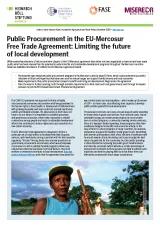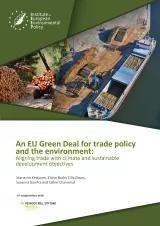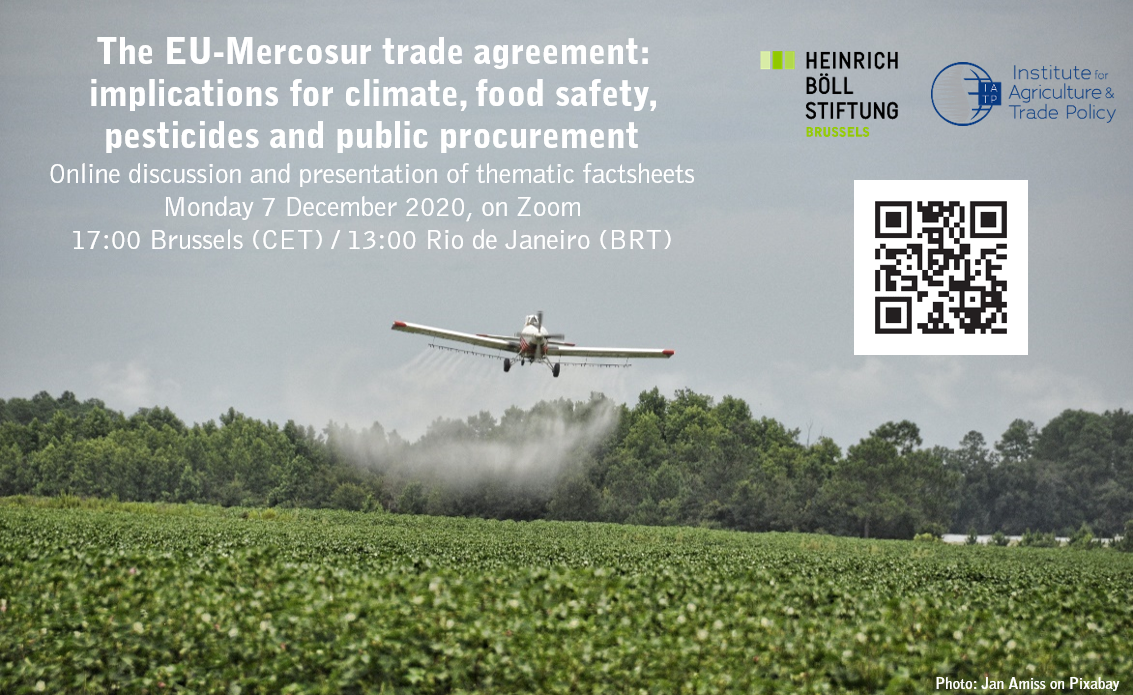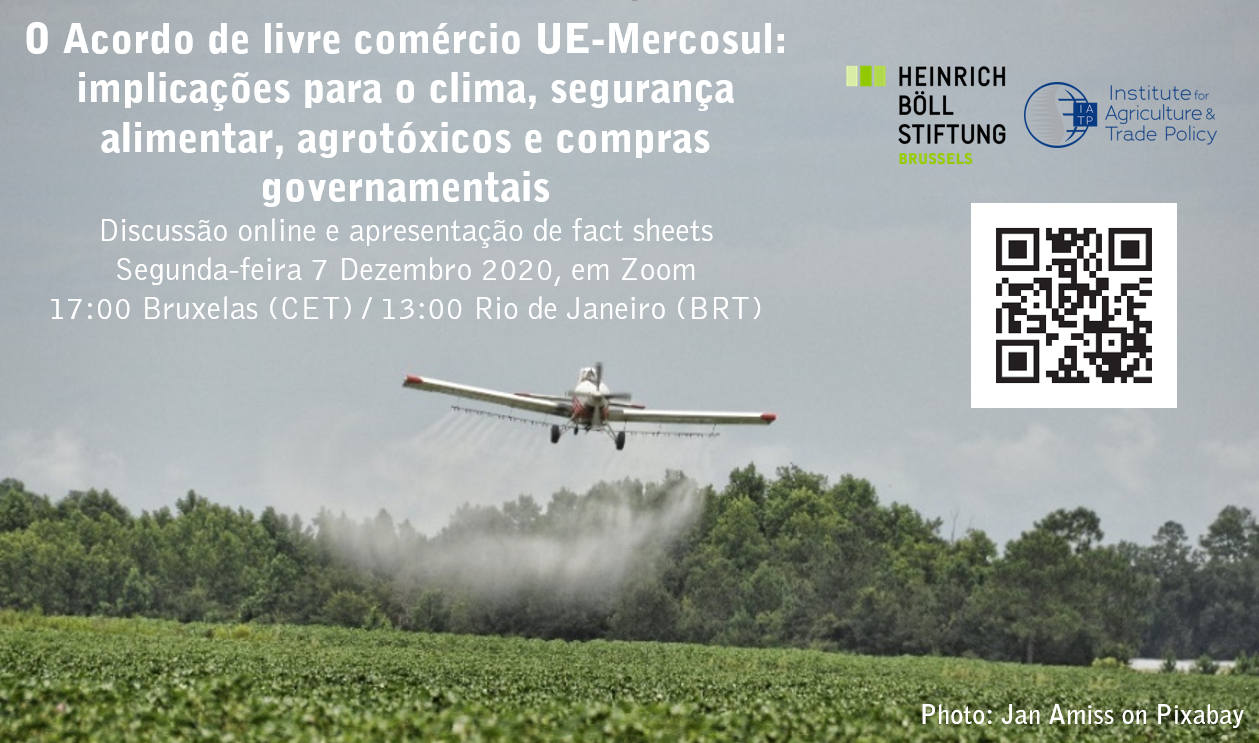Factsheets
The EU-Mercosur Free Trade Agreement
Thematic factsheets by Heinrich-Böll-Stiftung European Union and the Institute for Agriculture and Trade Policy

The EU and the Mercosur countries (Brazil, Argentina, Paraguay and Uruguay) reached an agreement on a free trade agreement (FTA) in June 2019. Before the agreement can enter into force, it requires the approval of the European Parliament, the national parliament of the 27 EU Member States as well as the national parliaments of the Mercosur countries. Concerns about environmental and social impacts were among the contentious issues that have led to more than 20 years of trade negotiations between both parties.
Four fact sheets, produced by Heinrich-Böll-Stiftung European Union the Institute for Agriculture and Trade Policy (IATP), provide an evidence-based overview over what the EU-Mercosur FTA would mean for climate change and land use, food safety, pesticides and GMOs, and public procurement. They provide facts and figures useful for policy-makers, civil society actors and journalists alike, showing that critical social and environmental rights are indeed at risk to be undermined by the FTA.













